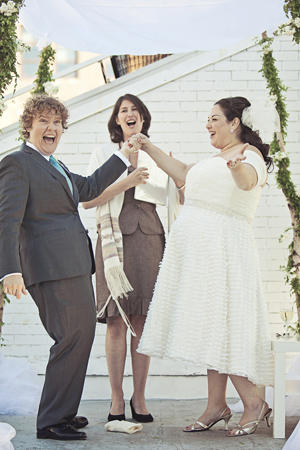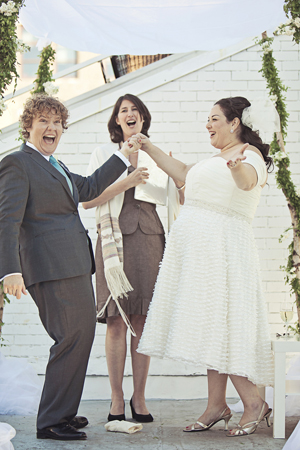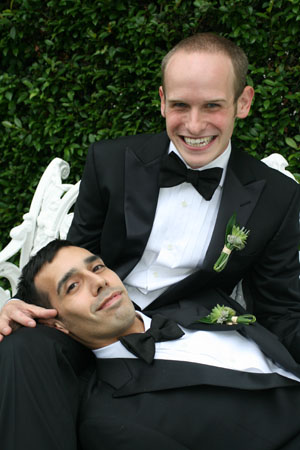 Give yourself—and your partner—a chance to breathe in the months before your wedding with these easy, expert tips.
Give yourself—and your partner—a chance to breathe in the months before your wedding with these easy, expert tips.
Give yourself—and your partner—a chance to breathe in the months before your wedding with these easy, expert tips.
By Patti Zielinski
 Alison and Irene, Photo Courtesy of Our Labor of Love
|
… | “There can be a dark side to wedding planning: stress,” says Gregory A. Kuhlman, Ph.D., founder of the Marriage Success Training workshops (stayhitched.com) and director of the Mental Health Counseling Program at Brooklyn College, City University of New York. Financial strains, opinionated family members and anxious significant others can all be pre-wedding stressors. “Stress management is more difficult during this time since your natural support system—your partner, friends and family—are now potential sources of stress. Many couples break up during their wedding planning because they haven’t taken measures to protect their relationship from stress.”
So what can you do to protect yourself and your loved one from burning out before the ceremony? Here’s Kuhlman’s advice: Keep your expectations realistic. |























